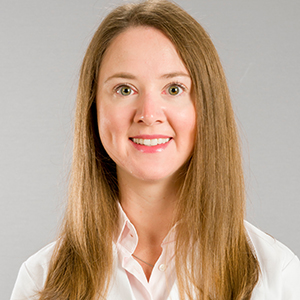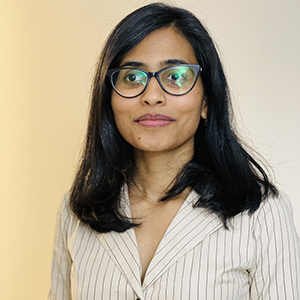Conversations with Cardiologists: Sheelagh Pousatis

Ayesha Shaik, MD, a cardiology fellow at Hartford Healthcare, in Hartford, CT, interviewed Sheelagh Pousatis, MD, a cardiothoracic surgeon at Hartford Healthcare about her journey as a cardiothoracic surgeon, from what motivates her to how she avoids burn out.
What motivated you to become cardiothoracic surgeon?
My motivation to go into surgery began as a school kid; I enjoyed animal dissections in science class. I also took care of my family members recovering from cardiac surgery, and I was intrigued by the milestone cardiac surgery becomes in one's life. I was therefore motivated to serve the community as a CT surgeon by the ability to offer patients these lifesaving surgeries.
Who has played a crucial role in helping you achieve your goals?
I had phenomenal mentors who played a major role in landing me a CT surgery residency and teaching me the required skillset. Bartley Griffith, MD, guided me throughout my surgical training. He is a very compassionate physician who spent a lot of time talking to patients and helped me build my confidence. His famous words are, "believe you can do it before you do it." Bradley Taylor, MD, from the University of Maryland, where I completed my CT surgery residency, taught me that "perseverance is the key."
What keeps you going?
Healing people and saving lives as a profession comes with lot of responsibility and vulnerability. It is important to treat every patient with the utmost care. Also, having some work-life balance is crucial. I like to destress with my cat and spend time with my family.
Can you elaborate on your passion for CT surgery?
Being able to perform complex surgeries in a time-sensitive manner and saving lives is what I like most about the field. I enjoy being in the operating room where I can guide and lead my team. The credit for a successful patient outcome should not only go to the surgeon, but to every person involved in the patient's care.
Do you have any advice for FITs and early career professionals?
Mentorship is crucial. I suggest FITs seek guidance from their mentors early in their career. It is also crucial to witness everything firsthand and know what is in store for the chosen career path. Always remember to follow your passion. Don't let anyone tell you that you are not a good fit; there's no reason to limit oneself without trying.
Have you faced gender bias in your career as a surgeon and how do you deal with it?
I have experienced both sides of it. Some of my patients have told me they are glad to have a female surgeon, as we are good listeners and caregivers. Some are surprised to see a female surgeon walk into the room. If a patient expresses concern, I offer them an option to be seen by one of my male colleagues. It is crucial for a patient to trust their surgeon so I believe that for the best outcome the patient should have a surgeon they best see fit.
What changes do you wish to see in the field of CT surgery?
I want more integrated training programs available to attract good candidates from medical school into CT surgery. Also, to encourage more women in cardiology and CT surgery.
What advice do you have for physicians to avoid burn out?
Say "yes" to activities outside of work. I say "yes" to my friends even on the most tiring days at work and this helps me take my mind off work and recharge myself for the next day.

This article was authored by Ayesha Shaik, MD, a cardiology fellow at Hartford Healthcare, in Hartford, CT.
This content was developed independently from the content developed for ACC.org. This content was not reviewed by the American College of Cardiology (ACC) for medical accuracy and the content is provided on an "as is" basis. Inclusion on ACC.org does not constitute a guarantee or endorsement by the ACC and ACC makes no warranty that the content is accurate, complete or error-free. The content is not a substitute for personalized medical advice and is not intended to be used as the sole basis for making individualized medical or health-related decisions. Statements or opinions expressed in this content reflect the views of the authors and do not reflect the official policy of ACC.

